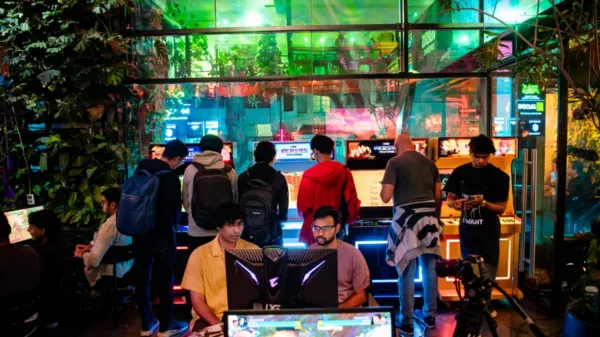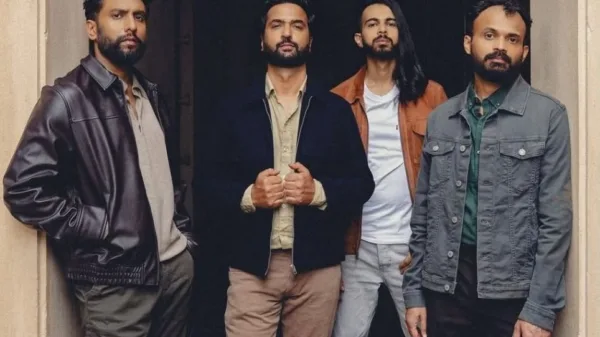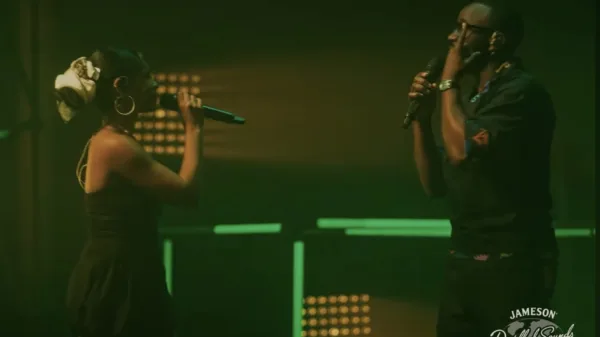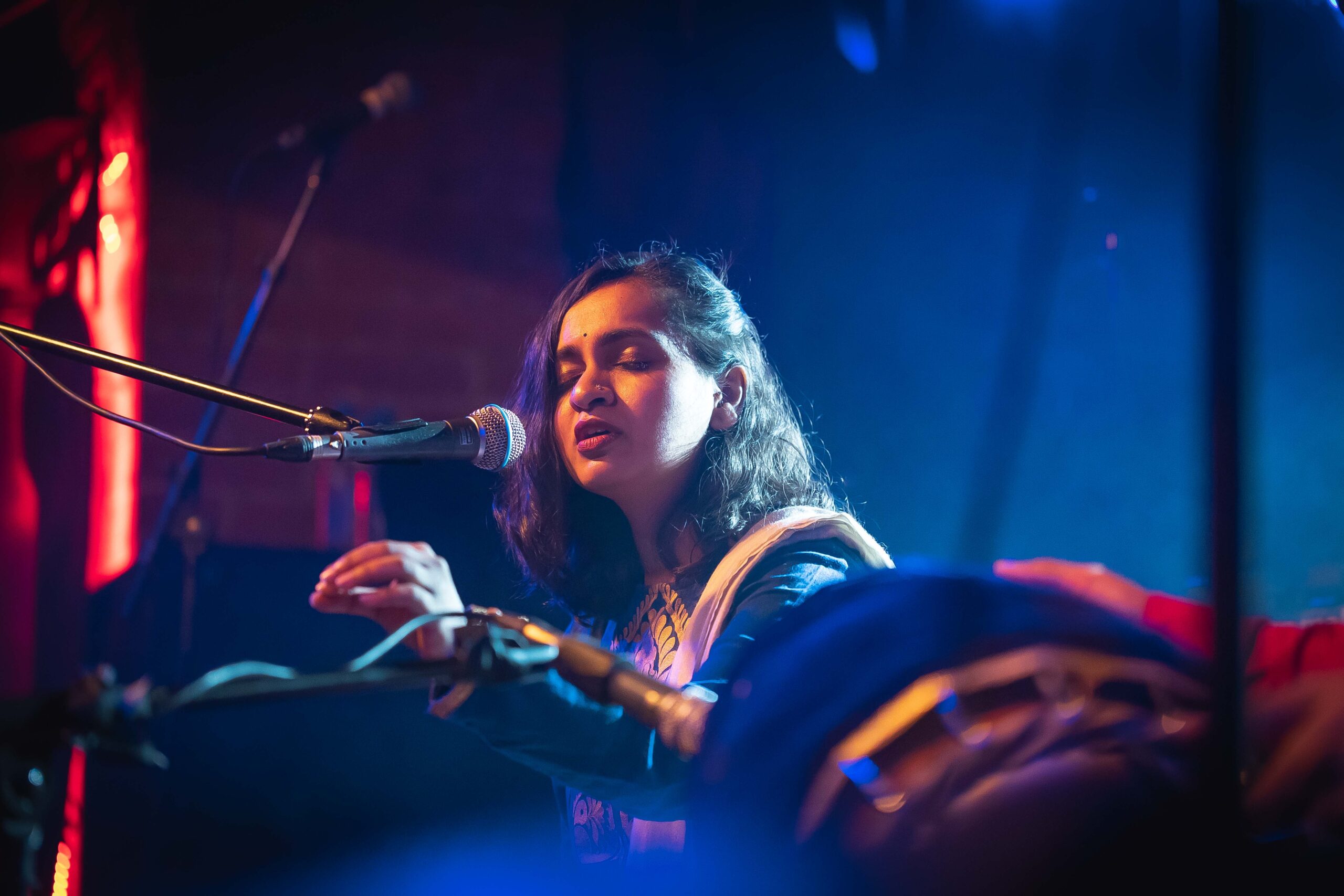Anyone who grew up with Carnatic music knows how intricate and systematic the musical form is. If you’re observant enough, you will also notice how most Carnatic artists are quite comfortable with their conditioning and tend to shy away from branching out and trying new things. This is why, from the very start, Bengaluru-based singer/songwriter Varijashree Venugopal caught my eye. Coming from a rich background in Carnatic music, she is a pioneering artist in applying the techniques, fundamentals, sound, and soul of Indian classical music in a global music context. A flautist, composer, songwriter, and music educator, Varijashree has been a known figure in the Kannada film and music industry for a while now.
While there are a lot of artists aiming to bridge the gap between Indian Classical Music and other global genres, I believe Varijashree is one of the very few artists who caught the essence of the word ‘fusion.’ While talking about her eponymous original album ‘Vari,’ she says, “The heart and soul of the album lies in its sound, with a mission to transcend boundaries.” Produced by the Grammy-winning artist Micheal League (of Snarky Puppy) and co-produced by Pramath Kiran, the album has a total of 12 songs with a runtime of 48 minutes and was released on the American label GroundUP Music.

While one might wonder, like myself, if ‘Vari’ might be a nod to the artist’s name, the album gets its name from the Sanskrit word meaning ‘water.’ “It is the state of mind I would like to be in,” said the artist when asked about why she named her album so. Water is an element that represents “purity, clarity, transparency, fluidity, life, and grace.” Likewise, you can see how these qualities and water itself become such an integral part of the album.
“Vari is a love story of all the musical threads from around the world that have come together to weave the fabric of my creative being.” The album, which seems like an eager interaction between Indian Classical Music and global sounds, will push you to listen to familiar sounds in another context. It is not just a mere blend of instruments and vocals; the team has successfully also managed to apply the rules of one instrument to another. As the artist mentioned, it is almost like “using the alphabet of a language to write a poem in another language altogether.”
Starting with the track ‘Dream,’ Varijashree talks about a delicate and vulnerable dream where she was in search of something that she’d lost along the way – “the spark that keeps the child in me alive, enabling me to love, receive love the way I did when I was born. Pure, doubtless, uninhibited, and open.” It begins with a haunting melody that quickly transfers you to a dreamy state of mind where you suddenly find yourself in the middle of nowhere. While the synths add a dreamy texture, the Indian instruments give the flavour of all the emotions you might go through during such an ordeal – curiosity, confusion, and nostalgia.
One of the many things that stood out for me in the album was the artists’ ability to paint a picture with music alone. Even without anyone explaining the concept, one can grasp the feeling the artist is aiming for, which serves their aim to transcend boundaries in music. ‘Jaathre,’ the focus track ‘Chasing the Horizon’ are examples of this. The focus track ‘Chasing the Horizon’ is a delightful and energetic ride through the twists and turns of the Carnatic Raga Valukabharana dressed up in a party costume through Varijashree’s classic Carnatic scatting. Adding to this thrill is the brilliant camaraderie between the Bandolin, Bass, Mridangam, and Morsing. This song, a pure celebration of all sounds global, mirroring the endless journey of chasing the said horizon of a dream along with the bumps on the road – the terrifying currents, tides, waves, and the unpredictability of the pace of the wind. ‘Jaathre’ on the other hand, is about a child’s experience in a fair. Through instruments like the harp and harmonium, the artist brings the childlike wonder and the grandeur of the carnival itself. With the arrangement which feels more like a recollection, the track also serves as a competitive exhibition of the talents present throughout the album.
True to the name, water remains a constant theme throughout ‘Vari,’ be it through lyrics, the way the tracks unfold, or the melody. The harmonious interflow of music genres in the album will also not be lost to the listener. ‘Harivaa Jhari’ is one such song where the artist brings out the nature of water in its entirety – relentless, resilient, yet graceful. Personified as water herself, Varijashree compares her journey so far with that of water while questioning what it is that she’s in search of, what’s holding her back, discovering her inner potential while striving to stay in the state of flow. The drop in the chorus reminds you, yet again, of the power of water where once it unleashes its inner energy, everything can wash away into nothingness. The composition of the song also follows the lyrics, where a trickle feels like a trickle, and a splash feels like a splash.
When asked about why she chose to record most of the songs in Kannada, the artist simply said “Kannada is the language I think in. It is my comfort zone, where I feel I can express myself freely.” As she pays an ode to water, she also proudly showcases her mother tongue Kannada through the song named the same. Song written by Padmanabha Bhat, Varijashree gives her flavour to this song by composing the song with a mesmerising flute interlude played by her father, the renowned H S Venugopal.
One of the most refreshing things about this album is the themes it presents. Steering away from the typical romance theme which I believe is overused in the industry, ‘Vari’ sheds light on niche themes such as the inner battles one goes through. At first glance, the song ‘Nee,’ which translates to ‘you’ might seem like a ballad about someone in particular. It is a pleasant surprise, however that it could be about anything – a child, parent, friend, partner, pet, the higher energies or water. One of the softer songs in the album, ‘Nee’ is a song about a loved one and the impact of their presence in one’s life and the acknowledgement of it. With a beautiful Shehnaayi interlude, the song is built within an ethereal soundscape filled with blissful harmonies. Continuing on this ethereal, dreamlike journey is the song ‘Liquid Light,’ which almost feels like an invocation to the guiding light the narrator in the album is in the search for in the album.
There are multiple instances in the album where the artist has been vulnerable, either through her lyrics or through the music. Just like water, she talks about how hardships are meant to be handled with grace. The track ‘Teardrop’ talks about how each drop reaches the sea of emotions we all feel as humans. Seeing it as the voice of life, the arrangement of the song about sadness is slow, allowing you to feel every drop of tear falling. ‘Search’ is yet another track that talks about how amidst the bad, there is the good, when you search for it while ‘Summaniru,’ an old song written by Saint Purandara Dasa talks about the inner turmoil. The poet in the artist radiates positivity in her, letting you see the world differently once you finish listening to it. It is an ask for you to slow down and appreciate the smaller things in life and find music not just around you, but in you.
While most artists rely on lyrics to express themselves, Varijashree says the very first language she learned was music. “Music is my medium of expression,” she said. This can be observed in every song in the album where she converses with the listeners through her voice and music. ‘Ranjani,’ one of the songs in the album serves as a conduit for her thoughts through Ranjani, a Raga that the singer/songwriter had a deep connection with since childhood. With infusions of banjo played by Béla Fleck, Carnatic violins, and diverse folk rhythms, Varijashree shares her threads of thoughts in the song expressing all the emotions one might go through during a deep introspection with oneself which includes Indian classical and folk percussion.
The album which was in the making for 7 years finally closes off with the track ‘Where It All Began,’ with the artist lending her rendition of ‘Lambodara,’ a traditional Carnatic geetham composed by Saint Purandara Dasa, that every Carnatic student first learns when they begin studying the form. Taking in the addition of an acapella, the song makes a powerful statement by showing what one can do with Indian Classical music.
With over 40 musicians from all over the world, the traditional form of music was able to meet a diverse array of musical traditions brought together by the rhythmic tapestry of Indian percussion. As Micheal League rightly said, the “lack of bias, the lack of association” was an added advantage to ‘Vari’ which created a phenomenal genre on its own unleashing the potential of music.


























